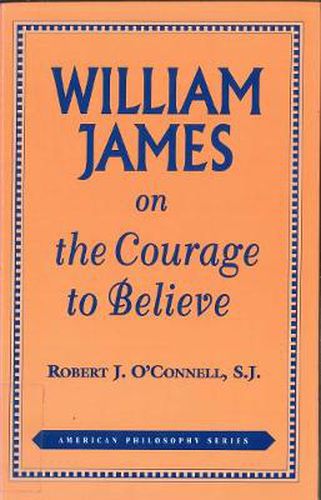Readings Newsletter
Become a Readings Member to make your shopping experience even easier.
Sign in or sign up for free!
You’re not far away from qualifying for FREE standard shipping within Australia
You’ve qualified for FREE standard shipping within Australia
The cart is loading…






William James’ celebrated lecture on The will to Believe has kindled spirited controversy since the day it was delivered. In this lively reappraisal of that controversy, Professor O'Connell contributes some fresh contentions: that James’ argument should be viewed against his indebtedness to Pascal and Renouvier; that it works primarily to validate our over-beliefs ; and most surprising perhaps, that James envisages our passional nature as intervening, not after, but before and throughout, our intellectual weighing of the evidence for belief.
$9.00 standard shipping within Australia
FREE standard shipping within Australia for orders over $100.00
Express & International shipping calculated at checkout
William James’ celebrated lecture on The will to Believe has kindled spirited controversy since the day it was delivered. In this lively reappraisal of that controversy, Professor O'Connell contributes some fresh contentions: that James’ argument should be viewed against his indebtedness to Pascal and Renouvier; that it works primarily to validate our over-beliefs ; and most surprising perhaps, that James envisages our passional nature as intervening, not after, but before and throughout, our intellectual weighing of the evidence for belief.